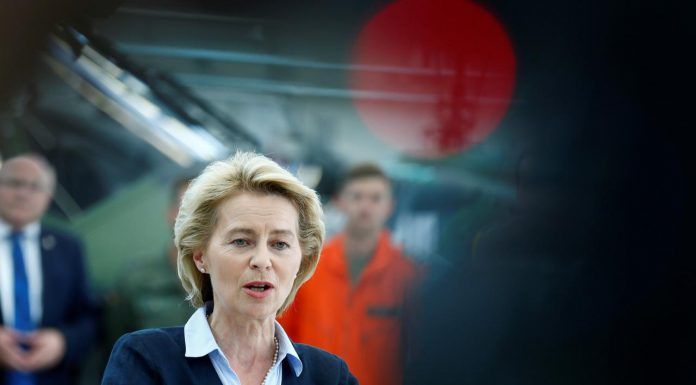BERLIN, Jan 15 (Reuters) – A 50-year-old Afghan-German dual national who worked for the German military was detained on Tuesday on suspicion of passing data to an Iranian intelligence agency, Germany’s federal prosecutor’s office said on Tuesday.
The suspect, identified only as Abdul Hamid S., went before a judge on Tuesday, who ordered him to remain in custody while the investigation continued.
“Abdul Hamid S. is strongly suspected of having worked for a foreign intelligence agency. The suspect was a language expert and cultural adviser for the Bundeswehr (German armed forces). In this capacity, he is believed to have passed insights to an Iranian intelligence agency,” the prosecutor’s office said in a statement.
The German defence ministry said it was aware of an espionage case involving a member of the military, but gave no further details.
German news magazine Der Spiegel reported that the suspect had access to sensitive information, including possible data on troop deployments in Afghanistan.
The German military often uses native-born interpreters to accompany troops on patrol in Afghanistan.
A German government source said the case was viewed very seriously, coming shortly after other espionage cases linked to Iran that last week prompted the European Union to add the names of two Iranians and an Iranian intelligence unit to its terrorist list.
“It has been made unmistakably clear to the Iranian side repeatedly that such unacceptable behaviour will have consequences,” the German foreign ministry said at the time.
Cornelius Adebahr, an analyst with the German Council on Foreign Relations, said the case underscored Iran‘s continued activities against Germany and the West.
“This cannot just be shrugged off. It makes clear Iran is a country with hostile intentions that is spying against us,” he said. “Despite Europe’s interest in maintaining the 2015 nuclear accord, this is not a relationship among friends or allies.”
Allegations of espionage by Iran come at a particularly sensitive time for Germany, which is battling along with other European countries to preserve the 2015 nuclear deal after Washington’s unilateral decision to pull out.
In July, Germany’s domestic intelligence agency reported that Iran had expanded its cyber attack capabilities and posed a danger to German companies and research institutions.
In January, the foreign ministry summoned Iran‘s ambassador over what it said was Tehran spying on individuals and groups with close ties to Israel.
(Reporting by Andrea Shalal, Sabine Siebold and Thorsten Severin Editing by Michelle Martin and Robin Pomeroy)


